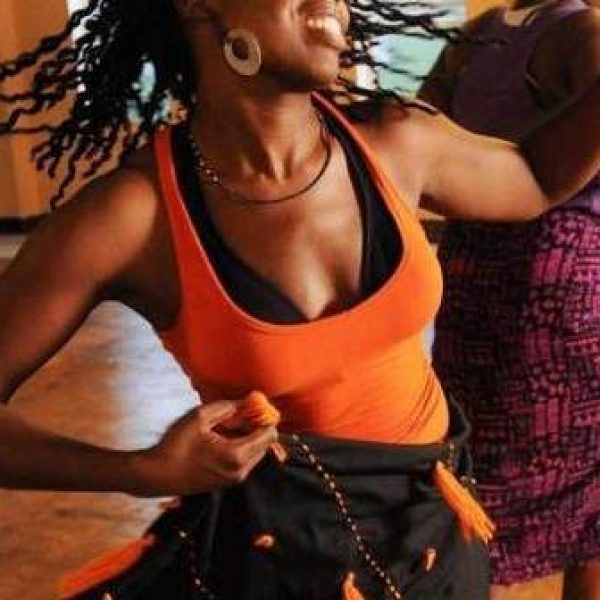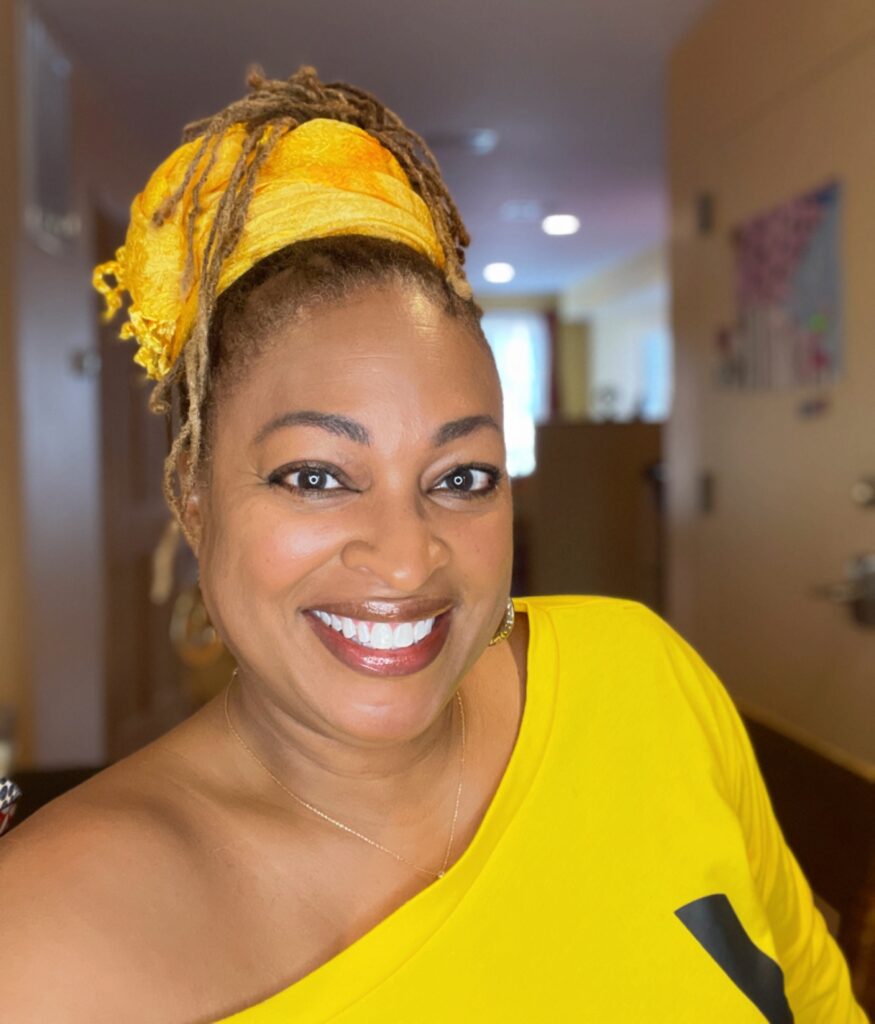Health, happiness and well being should be accessible to everyone. And this may look very different to different people, and there’s nothing inherently wrong with that. But right now we are facing so many health disparities and social, emotional, environmental, financial and physical inequities as black women that it means that we are playing catch up in a way. So there’s that, but also cultural values shape our ideas, perceptions and needs around wellness, and in the current wellness culture these ideas and experiences are nonexistent.
We live in a society where one dominant culture dictates literally everything we experience in our lives. Yes, it’s a crying shame because we as black women typically are forced to contort ourselves to fit into roles and spaces that we just don’t fit in. This is especially evident in the wellness world. It’s not just that we are different and have different needs and desires, but we are also ignored and in many cases, unwelcomed, no matter our location or economic status.
Wellness is often portrayed as requiring expensive spa treatments, crunchy raw vegan detox diets, yoga, miracle cures to made-up ailments, coochie steams, medical quackery, and the relentless pursuit of ridiculously unmelanated beauty standards. And these requirements are imposed by a whole billion dollar wellness industry that’s basically a hyper-extension of an already racist and sexist diet culture, with a healthy dose of opulent classism.
Diet culture and wellness culture both value whiteness, thinness, and wealth over all else. So while we may be looking for information, services and activities that actually make a positive difference in our overall well being, these things lack applicability in the worst way. And so you may feel like your body, your skin, your health concerns are just so far gone you may as well give up and completely let yourself go. You’re too thick, too dark, too poor or too unhealthy to participate. So why bother with the effort of trying to squeeze a morsel of value out of something that takes you in exactly the opposite direction of where you want to be? What does this do to our well being?
“What I’ll affectionately refer to as wellness culture is the nebulous system created by the weight-loss industry, food marketers, pseudo-science nutritionists and Instagram personalities. It’s enabled by — and flourishes under — the conditions of capitalism, individualism, corporate misogyny and social media. It’s the culture that leads you to believe — explicitly or not — that by following a never-ending list of routines and rules, you too can achieve optimum health.”~Arie Faber, The Spinoff
It’s not acceptable to simply replicate the mainstream wellness paradigm and repackage it with some pretty brown faces and claim it’s for black women for two reasons. At its worst, ignores our lived experiences and challenges and at its best just throws us in the mix as an afterthought. We have different needs and values that contrived wellness culture just can’t address. We face the stress of relentless racism on a daily basis. We are often the caregivers of loved ones, but who takes care of us? Then we are at risk for all kinds of conditions and chronic lifestyle diseases that actually need to be addressed early on, before they become deadly.
Actual wellness is the quality or state of being healthy in both body and mind, especially as the result of deliberate effort. Wellness is a way of life, not a never ending series of fads and it includes the absence of disease but also must include mental, emotional, social, spiritual and intellectual well being too. Wellness has to be culturally inclusive. But the wellness industry isn’t really about that life. Making money by selling products is the priority so it doesn’t matter if people are left out. It’s hard to feel comfortable expressing yourself freely when you’re not welcomed and so your efforts towards wellness are stifled.
As black women, we need wellness to include and honor our lived experiences, cultures, traditions and values. And it must be more authentic than what is presented by social media influencers (product models) and gurus. Also, it should not go completely against everything that we are in real life, treating us as othered and less than. Wellness does not always need to be some free or low cost YMCA program either, because we deserve nice luxurious things too. But do they have to be yoga, hot stones and green smoothies? Well, sure, if you want, but this does not represent the whole vision of wellness for all or even most of us.
So here we are, redefining and decolonizing wellness, and having fun and thriving while doing it. Wellness looks different for us. It’s not all skinny blondes grinning at bowls of green salad or contorting in some yoga poses outside on a rock. It doesn’t impose any particular body type or beauty standards. Our wellness does not include food rules, restrictive rituals, punishment, self-loathing, envy, hyper-competition, conformity or other unhealthy culturally incompatible white girl nonsense. We don’t waste time on made-up illness because we have the threat of very real chronic lifestyle diseases to prevent.
While it’s fine for our wellness programming to feel luxurious if we like, because after all, it is a part of self care. But for black women, there needs to be an offer of opportunity to take a wellness experience back to our families and communities, reaching them where they are. This requires scientific knowledge and cultural awareness. As you move forward in the realization of the lifestyle you truly want, others may look on with curiosity and excitement despite their unreadiness to embark on a full out wellness adventure can still benefit immensely from relevant knowledge you share, especially regarding food and avoiding diet culture.
So what does wellness for black women look like? There will not be only one way to answer this. But we know what it doesn’t look like. I believe that wellness for black women involves creating lifestyles that we love and that nourish us and make us feel good about ourselves. Wellness for black women may include flavor, rhythm, laughter and freedom. LifeBliss Foodie is an online wellness space that completely centers black women, where we create our own joy, relaxation and freedom to live the way we really want.
Want to learn more? Let’s chat!


 I’m LifeBliss Lisa and I coach black women on how to create intentional, healthy, soft lifestyles.
I’m LifeBliss Lisa and I coach black women on how to create intentional, healthy, soft lifestyles.